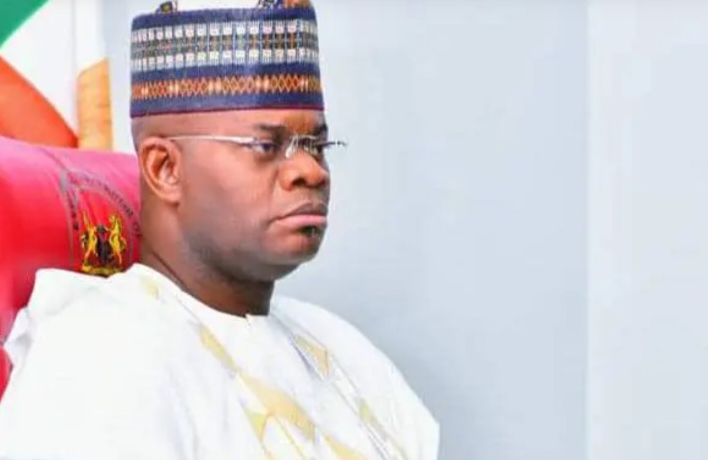The Economic and Financial Crimes Commission (EFCC) has officially detained Yahaya Bello, the former governor of Kogi State.
This development follows his appearance at the EFCC headquarters in Abuja on Tuesday.Dele Oyewale, the EFCC’s Head of Media and Publicity, confirmed the arrest during a briefing with journalists.
According to Oyewale, Bello was detained by the Commission’s chief security officer upon his arrival at the EFCC office. “It is true that we have him in our custody.
The operatives of the Commission arrested him,” Oyewale stated.Bello’s visit to the EFCC office was reportedly in response to allegations of financial impropriety leveled against him, specifically involving the misappropriation of funds.
He arrived at the Commission’s headquarters in the company of his legal team. However, conspicuously absent from his entourage was his successor and current governor of Kogi State, Usman Ododo, who had accompanied Bello during a prior visit to the EFCC office a few weeks ago.
The former governor has been under investigation by the EFCC for some time. On April 18, 2024, the anti-graft agency declared Bello wanted in connection with an alleged N80.2 billion money laundering case.
The EFCC accused him of financial misconduct during his tenure as governor, a charge that has drawn significant public attention.
Bello’s arrest marks a critical moment in the ongoing investigation, as he had previously avoided detention despite repeated calls for him to answer for the allegations.
Tuesday’s detention suggests a more decisive step by the EFCC to hold the former governor accountable for the accusations against him.
The absence of Governor Usman Ododo in this latest development has also raised eyebrows. Ododo, who succeeded Bello as governor of Kogi State, had previously been seen accompanying the former governor during visits to the EFCC.
This time, however, Bello faced the anti-corruption agency alone, flanked only by his lawyers.
The EFCC’s investigation into Bello centers on allegations of large-scale financial mismanagement and corruption, with the N80.2 billion case being one of the most high-profile charges.
The Commission’s decision to arrest Bello highlights its commitment to addressing corruption in the country.
As of now, the EFCC has not disclosed further details about the progress of the investigation or the next steps in the legal process.
However, Bello’s detention is expected to spark further scrutiny and debate about governance and accountability in Nigeria.

